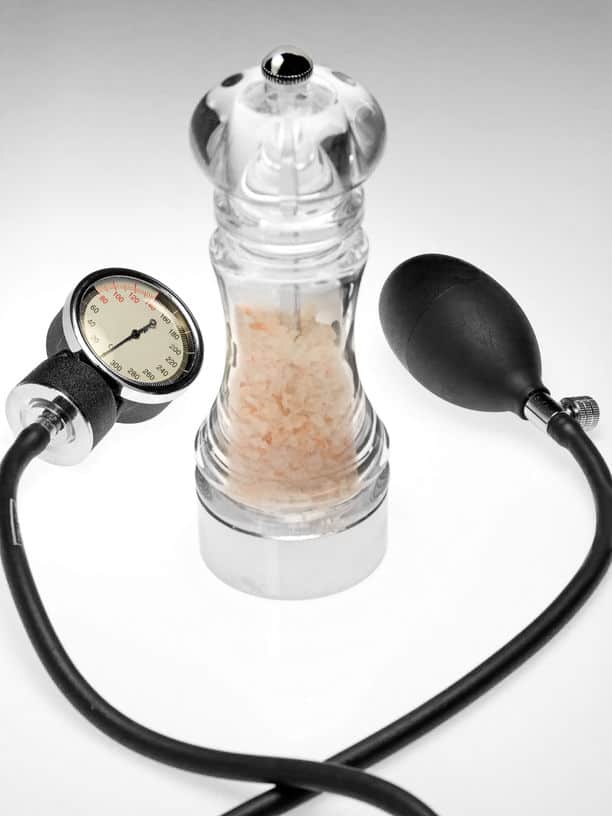

For almost 40 years, management of dietary sodium intake has been a principal tenet in the gospel of cardiovascular disease prevention. The guidelines for sodium intake are accepted and promoted by the National Heart, Lung and Blood Institute (NHBLI), and the National High Blood Pressure Education Program (NHBPEP) as well as the American Heart Association and all of the other usual suspects in conventional medicine. These standards have been entrenched in the minds of the medical profession and the general public for decades, despite the fact that the policy has never been fully supported by research data.
The Salt-Blood Pressure Theory
In fact, early on, numerous challenges to the salt-blood pressure hypothesis were brought in the form of published research and journal articles. And, the fact that the current dietary guideline for salt intake is based on data that was collected as many as 60 years ago should be reason enough to reevaluate the guidelines based on more current data. Moreover, contemporary data that disproves the salt-blood pressure theory does exist. But, up until now, evidence that questions or refutes the accepted guidelines has been largely ignored or branded invalid.
The reality is that the data upon which these guidelines were designed was bad. According to Sanford Miller, “but arguably supported the benefits of salt reduction at the time. Now, both the data and the science are much improved, but they no longer provide forceful support for the recommendations.” Sanford Miller helped design the dietary sodium policy as director of the Center for Food Safety and Applied Nutrition at the FDA.
On the face of it, limiting salt intake seems to be a health strategy with little downside. The difficulty lies in the fact that salt is one of the primary ways in which we flavor our foods and the salt taste is hard-wired into our taste buds, so we are going to be drawn to the flavor. Additionally, almost all processed and fast foods contain sodium. This makes avoiding salt a difficult lifestyle to maintain. But that is not the only problem that the dietary guidelines present.
New Research
New research indicates that the recommended dietary intake levels of salt may be too low and, like excessively high salt intake, may lead to negative health consequences including a greater risk of death. What emerging studies are finding is that consumption of 3 to 6 grams of salt daily (well-above the 2.3 gram/day guideline) has little or no impact on blood pressure or heart disease risk. At the very least, this new information indicates that it is time to reevaluate our attitudes toward salt.
The Probable Truth
The health risks associated with salt intake probably have more to do with the amount of processed foods we eat in America and the toxins that they contain. Furthermore, diets high in processed foods that are notoriously high in sodium usually have concurrent deficiencies in potassium, magnesium and calcium which must exist in balance with sodium in the body for good health. The upshot of all this is that, while all the facts are not yet in, it’s a safe bet that if your diet is comprised mainly of fresh, whole foods cooked at home, you need not worry about how much salt you are using in your cooking.
A Final Thought
Glacial salts such as Himalayan salt or REAL salt (brand name) contain other trace elements such as potassium, which provide electrolyte balance as well as flavor to your food. Use these in place of common table salt for further benefit.
*Author’s Note: Those suffering from health conditions that may be adversely affected by salt intake such as severe kidney disease, severe hypertension or Multiple Sclerosis should consult their physician before making any dietary changes regarding salt.




